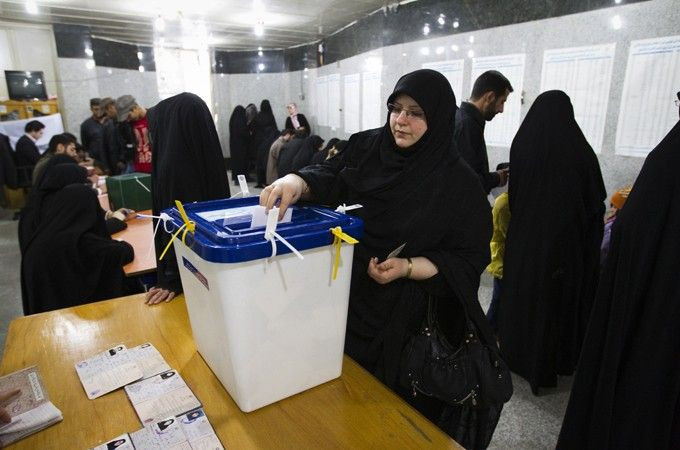Iran Elections 2012: Polling Results Indicate End to Ahmadinejad Rule

The results from Iran's Parliamentary elections, which took place on Fri. March 2, are just starting to trickle in today, and it appears that the Broad Principalist Coalition, a political organization founded in 2008 by Supreme Leader Ayatollah Ali Khamanei to oppose Iranian President Mahmoud Ahmadinejad, will win in a landslide, signifying the end of Ahmadinejad's rule. Election results will be counted manually, and final tallies will not be available until three days after the election, which was extended an extra five hours, with polls closing at 11 p.m. local time, according to Reuters. No independent observers were allowed to verify the official election turnout figures or monitor the voting itself.
It appears that the era of 'Ahmadinejadism' in Iran's political history is gradually coming to an end, prominent Tehran-based political analyst Davoud Hermidas Bavand told al-Jazeera.
The Iranian state-owned Press TV reported that, of the 290 seats in Iran's parliament, 112 went to the Principalists, 28 went to the anti-government Reformists, and only 10 went to the pro-government and pro-Ahmadinejad camp.
More than 65 percent of eligible voters have cast their ballots in Iran's parliamentary elections, with 75 percent of the candidates from the Principalist camp winning their way into the chamber, according to unconfirmed results, Press TV reported. The state-run news organization noted that only 48 percent of eligible voters in Tehran, Iran's relatively cosmopolitan capital, voted. This may be because the city has a high concentarion of Green party supporters, who boycotted the election and refused to promote any candidates.
The outcome is predetermined, Reyhane, a 25-year-old member of the Reformist party, told the AFP news agency. It's of no difference if I vote or not. I learned this from the previous election, when our votes were stolen.
British Foreign Secretary William Hague also questioned the election's validity as a tool of legitimate democracy.
The regime has presented the vote as a test of loyalty, rather than an opportunity for people freely to choose their own representatives, he said in a statement posted on the United Kingdom Mission to the UN Web site.
Ahmadinejad is not the first president to fall out of favor in the eyes of the country's supreme religious ruler, Ayatollah Ali Khamanei. Since the rise of the Islamic Iranian state in 1979, every president has eventually lost the backing of the country's religious leader, either by being impeached or assassinated. Now, it appears that Ahmedinajed's time as president has come to an end as well.
© Copyright IBTimes 2024. All rights reserved.





















